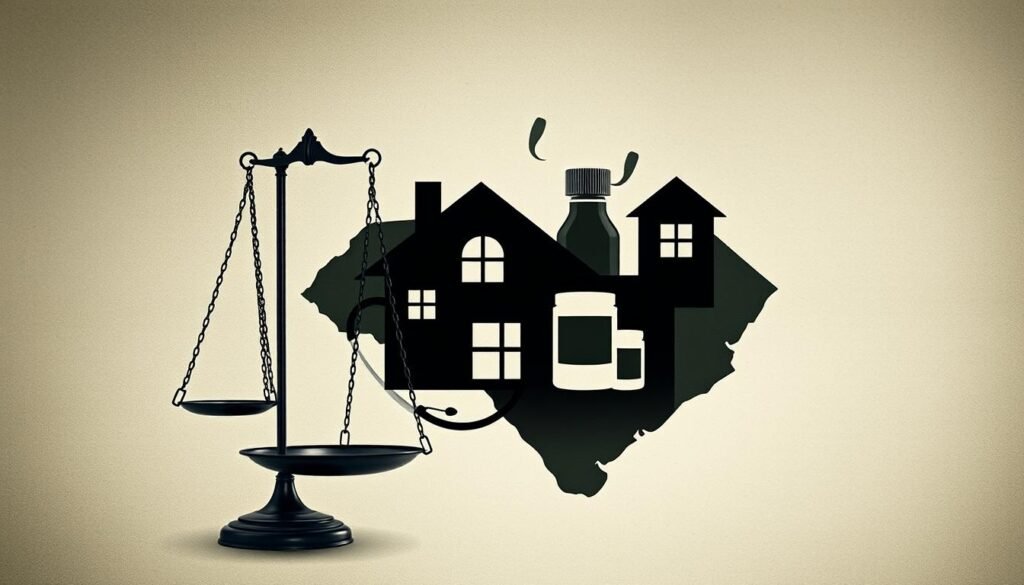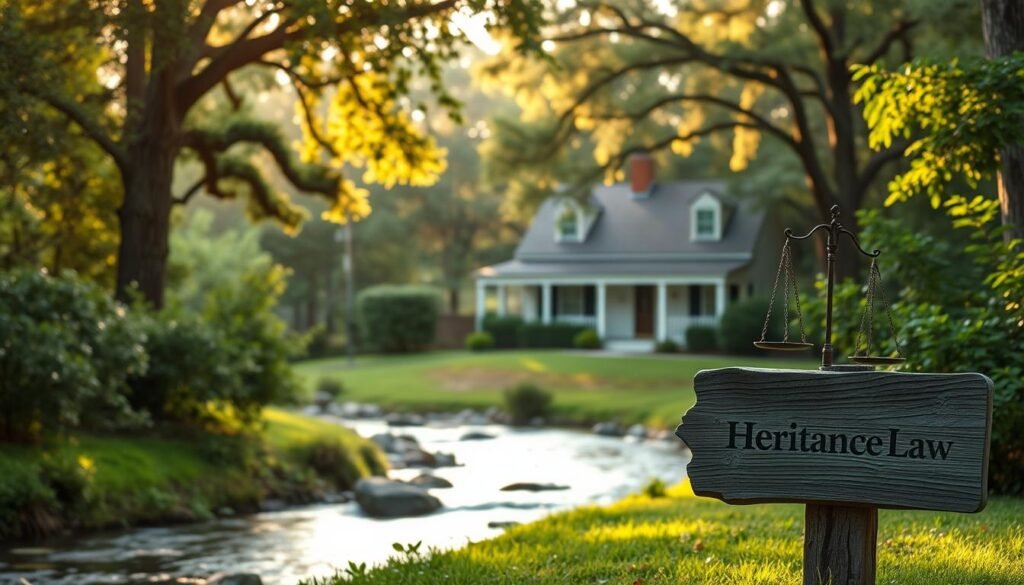In 1993, the U.S. Congress passed a law requiring states to recover Medicaid payments made for certain recipients. In South Carolina, the Estate Recovery Program went into effect on July 1, 1994. The state will recover amounts paid by Medicaid for services received on or after that date. Estate recovery applies to individuals aged 55 or older who received medical assistance such as nursing facility services, home and community-based care, or were in a long-term care facility at the time of death.
Recovery may only be made after the death of the recipient’s surviving spouse, if one exists, and when the recipient has no surviving child under age 21 or no child who is blind or permanently and totally disabled. The South Carolina Department of Health and Human Services can waive recovery upon proof of undue hardship.
Key Takeaways
- Medicaid estate recovery is required in all 50 states, including South Carolina.
- Recovery efforts are limited to assets within the state where Medicaid benefits were received.
- Medicaid can seek repayment after the recipient’s death if specific criteria are met.
- Recovery could cause undue hardship to surviving spouses, minor children, or disabled children.
- Medicaid estate recovery generally applies to long-term care services or certain Medicaid benefits, regardless of age or institutionalization status.
Understanding Medicaid Estate Recovery in South Carolina
What is Medicaid Estate Recovery?
Medicaid estate recovery is a process where state Medicaid programs seek to recoup the costs of long-term care services provided to Medicaid recipients after their death. When an individual receives Medicaid benefits for certain types of long-term care, such as nursing home care or home health services, the state may have the right to recover the expenses from their estate.
The specific details and procedures of Medicaid estate recovery can vary by state, but generally, the state will identify the deceased Medicaid recipient’s estate, notify the executor or administrator, conduct an inventory of assets, and pursue recovery through the sale of assets or placement of a lien on the property.
According to recent data, states have different thresholds for estate recovery. For example, Georgia does not seek recovery if the estate value is under $25,000, while Texas does not pursue estates under $10,000. Additionally, Texas exempts recovery if Medicaid long-term care costs are under $3,000, and some states like California and Texas prohibit estate recovery after the death of the non-Medicaid spouse, unlike other states.
It’s important to note that all states enforce Medicaid Estate Recovery, with a few exceptions, such as living spouses, children under 21, disabled children of any age, siblings with equity interest living in the home, or children providing care delaying institutionalization.
Medicaid is the largest source of funds for institutional long-term care, covering nearly half of the total expenses. In 2003, estate recoveries from Medicaid amounted to $330 million, which represented 0.13% of total Medicaid spending across all states, with individual state collections ranging from 0.0 – 0.64%.
The home is typically considered part of the recoverable estate unless protected for the spouse or certain close relatives, or conveyed outside the state’s definition of “estate” (e.g., through a life estate).
Who is Subject to Medicaid Estate Recovery?
Medicaid estate recovery in South Carolina applies to specific beneficiaries who have received certain medical assistance. The recovery program was established in 1993 by the U.S. Congress and allows the state to claim assets from the estates of deceased Medicaid recipients. Understanding who is subject to this process is crucial for individuals and families seeking to protect their assets.
The Medicaid estate recovery program in South Carolina primarily targets two main groups: individuals aged 55 or older who received medical assistance, such as nursing facility services, home and community-based care, or were admitted to a long-term care facility at the time of their death. Recovery may also be pursued if the deceased individual had no surviving spouse or child under the age of 21 or a child who is blind or permanently and totally disabled.
It’s important to note that Medicaid is the largest insurer for people with disabilities and nursing home care, covering about half of all nursing home expenses in the United States. With the average cost of long-term care reaching $200,000 for a 2.5-year stay, many families turn to Medicaid to help cover these significant costs. However, the estate recovery program can impact their ability to pass on assets to their heirs.
To avoid the impact of Medicaid estate recovery, individuals and families should consider estate planning strategies and consult with an experienced estate planning attorney. By understanding the nuances of the recovery program and exploring options like trusts, individuals can take proactive steps to protect their assets and ensure their wishes are upheld.

| Key Aspects of Medicaid Estate Recovery in South Carolina | Details |
|---|---|
| Covered Beneficiaries | Individuals aged 55 or older who received medical assistance, such as nursing facility services, home and community-based care, or were admitted to a long-term care facility at the time of their death. |
| Exemptions | Recovery may be avoided if the deceased individual is survived by a spouse, a child under the age of 21, or a child who is blind or permanently and totally disabled. |
| Asset Recovery | Medicaid may seek to recover funds spent on nursing facility services, home and community-based services, and related hospital and prescription drug services from the estate of the deceased. |
| Asset Transfers | Transfers of assets for less than fair market value within five years before the Medicaid application may result in an eligibility penalty, with some exceptions. |
Can Medicaid Take Your House in SC?
When it comes to Medicaid and your home in South Carolina, the answer is not a simple yes or no. Medicaid’s estate recovery program can potentially seek reimbursement from the deceased Medicaid recipient’s estate, which may include their home. However, there are important exceptions and strategies to protect your assets, including your house.
Medicaid estate recovery in South Carolina means that the state Medicaid agency can place a lien on the Medicaid recipient’s real estate during their lifetime. After the recipient’s death, the state can seek reimbursement for the cost of the Medicaid benefits provided by selling the home or other assets in the recipient’s estate. The equity value of the home must be less than $1,071,000 in 2024 for a nursing home resident to qualify for Medicaid in South Carolina.
Fortunately, Medicaid will not impose a lien on a home if the Medicaid applicant’s spouse, a child under 21, a blind or disabled child, or a sibling with an equity interest in the house is living in the house. Additionally, Medicaid does not consider a nursing home resident’s home as an asset if there is an intent to return home, with specific conditions to meet for proving such intent.
If the property is sold while the Medicaid recipient is living and there is a lien in place, the recipient may lose eligibility, and they may have to pay back the state for its coverage of care. The house may still be subject to estate recovery after the Medicaid recipient’s death, depending on the specific state’s regulations.
To understand how Medicaid estate recovery and property protection work in South Carolina, it’s essential to consult with an elder law attorney. They can help you navigate the complexities and ensure that you’re taking the necessary steps to protect your assets, including your home, while still qualifying for Medicaid when needed.
| Scenario | Medicaid’s Action |
|---|---|
| Spouse, child under 21, blind or disabled child, or sibling with equity interest living in the home | Medicaid will not place a lien on the home |
| Nursing home resident with intent to return home | Home not considered an asset for Medicaid eligibility |
| Home sold with Medicaid lien in place | Recipient may lose eligibility and have to pay back Medicaid coverage |
| Home subject to estate recovery after recipient’s death | Dependent on state-specific regulations |
Protecting Your Assets: Strategies and Exemptions
When it comes to protecting your assets from Medicaid estate recovery in South Carolina, there are several legal strategies and exemptions you can explore. Our team at Heritance Law is dedicated to guiding you through the process and developing a personalized plan to safeguard your estate.
One key strategy is utilizing the undue hardship waiver. This waiver can be granted if the enforcement of Medicaid estate recovery would cause substantial and lasting financial distress. Additionally, ensuring the home remains exempt if you have a surviving spouse, minor children, or disabled children can help preserve this valuable asset.
Another approach is properly documenting equity interests for adult children who have lived in the home for at least a year prior to your nursing home admission. This can provide an exemption from Medicaid estate recovery for a portion of the home’s value.
- Medicaid planning techniques, such as trusts and asset transfers, can also help preserve your estate while ensuring you qualify for long-term care coverage.
- Establishing an irrevocable trust can protect your home from Medicaid estate recovery, offering more flexibility than life estates.
- Selling the home while it is held in a properly drafted trust may allow exclusion of up to $250,000 in taxable gain, if residency requirements are met.
The laws surrounding Medicaid and asset protection in South Carolina can be complex, so it’s crucial to work with a qualified attorney to determine the most suitable strategy for your unique circumstances. At Heritance Law, we are committed to helping you navigate these challenges and safeguard your hard-earned assets.
Conclusion
Understanding Medicaid estate recovery is essential for protecting your assets and ensuring your loved ones are cared for. While Medicaid can seek reimbursement from your estate, there are strategies and exemptions available to safeguard your home and other assets. By working with an experienced Medicaid planning attorney at Heritance Law, you can develop a comprehensive plan to navigate the estate recovery process and preserve your legacy.
Navigating the complexities of can medicaid take your house in SC and medicaid estate recovery in South Carolina can be daunting, but the team at Heritance Law is here to guide you. We’ll help you explore medicaid planning south carolina options and identify ways to avoid medicaid estate recovery, so you can take proactive steps to protect your family’s financial future.
Don’t wait until it’s too late – contact us today to learn more about your options and take the first step towards avoiding medicaid estate recovery in South Carolina. Together, we can develop a strategy that aligns with your goals and ensures your assets are preserved for the next generation.

